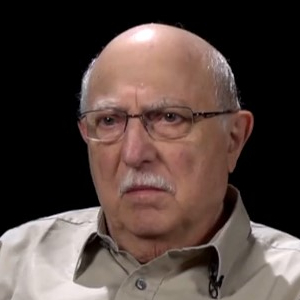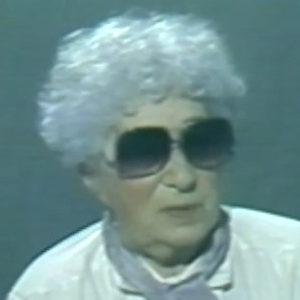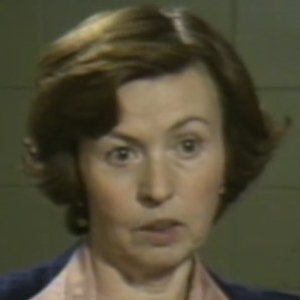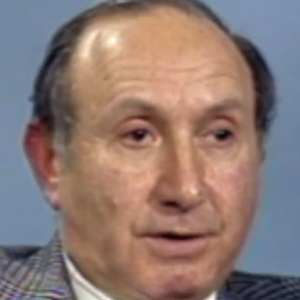Elizabeth Fischer
Elizabeth recalls how she was able to bypass travel restrictions placed on Jews in Hungary.
Elizabeth Fischer (née Eichler) was born May 18, 1923, in the village of Kopócsapáti, Hungary (now Aranyosapáti) in the Northern Great Plain region of eastern Hungary. She was the only child of her parents, who were landowners, but had two half-siblings on her father’s side who she considered her brother and sister. She was 6 months old when her mother died from cancer. Her father remarried, but also died from cancer when she was 6 years old. The rest of her childhood was spent with her abusive aunt and uncle in the city of Nyíregyháza. During these years she enjoyed spending time with her siblings, maternal uncle, and grandmother. At age 13 Elizabeth went back to live with her brother, sister, and grandmother in Kopócsapáti.
During the early years of the war, Elizabeth recalls not facing many problems because her family lived on 500 acres of land and provided vegetables for the village. When Germany occupied Hungary in 1944, Elizabeth was living in Budapest. She returned home to Kopócsapáti for Passover, and witnessed people being taken to ghettos.
Elizabeth and her sister were taken to a ghetto in Kisvárda. After spending six weeks in Kisvárda, Elizabeth and her sister were taken to Auschwitz. Sadly, her sister and niece were sent to the gas chambers upon arrival at Auschwitz. Elizabeth spent 3 months at the camp before being chosen to work in a munitions factory. Her factory was liberated by Soviet forces when the war ended on May 8, 1945 (Victory in Europe Day)
Elizabeth and her husband (who she married in 1945) returned to Hungary and had three children- one daughter and two sons. They fled to Austria in 1956 to escape the Hungarian Revolution, then immigrated to Canada in 1957. They lived in Montreal, Quebec, and Elizabeth found work at a catering company, followed by a position as a forelady at a factory, and finally she did clothe alterations at home after breaking some of her ribs in a car accident.
Elizabeth Fischer passed away on August 15, 2021. Her full testimony is part of the Canadian Collection of Holocaust survivor testimonies. It is preserved in the USC Shoah Foundation’s Visual History Archive and accessible through the Ekstein Library.
Elizabeth FischerHe [a young man from Elizabeth’s village] said, “What’s the matter with you? You are going to sit beside me and I am going to say you are my fiancée.”
Testimony to discover
-
Liberation

Jacques Mydlarski
Jacques recalls hiding in a cellar from bombings the night before learning his area was liberated by the allies. He also tells how he encountered alli...
Listen -
Occupation

Kitty Kenedi
Kitty recalls lining up and receiving a Schutzpass with her husband. The pass granted them Swedish citizenship and some protection from anti-Jewish la...
Listen -
Camp

Klara Forrai
Klara describes the procedures surrounding a secret birth at Auschwitz-Birkenau. She remembers the baby being delivered in secret, taken from the moth...
Listen -
Camp

Martin Baranek
Martin describes the conditions he endured at Mauthausen. He remembers beatings and not being fed.
Listen
Educators & Students
Educational guides
Check resources